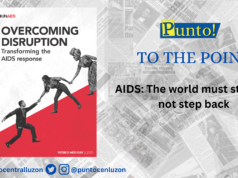THE PHILIPPINES is once again rated as among the Top 10 worst countries in the world for working people according to the International Trade Union Confederation (ITUC) Global Rights Index 2019. Released on June 2019, the report rated the Philippines as 5, which means that while laws provide certain rights, “workers have effectively no access to these rights and are therefore exposed to autocratic regimes and unfair labor practices.”
It is grievous that our country has drastically regressed in protecting the rights of workers. Considering that this has been the case for two years in a row, the government is expected to have taken urgent actions on this aspect. In particular, trade union members and leaders who are in the frontline of claiming rights must be accorded due protection for they are most vulnerable for fighting for the welfare of their fellow workers.
Freedom of association and freedom of peaceful assembly, including the right to form and join trade unions are guaranteed rights. However, the reprehensible escalation of violence, attacks, and intimidation against workers especially those who are members of union groups did not seemingly wane. In particular, the death of nine striking sugar farmers last year reflects the grim situation of workers. This year, 14 farmers were killed in Negros Oriental after resisting police arrest.
The shrinking of democratic space in the country also exacerbates the cause of workers. Their grievances are tagged as political dissent. Hence, many union groups are subjected to suppression, threats, and harassment.
May the ITUC report jolt the government into action. Primarily, the injustices committed towards workers in the past years need to be expediently resolved. Proactive efforts must also be done to address the grievances of workers instead of repressing them. There is always a peaceful and democratic way to resolve workers issues both on the part of the government, business, as well as workers, which is why it is essential to always create a safe and enabling space for dialogue.
(Statement of the Commission Human Rights on the rating of the Philippines as among the worst countries for working people, July 3, 2019)
ACCORDING to April 2019 Labor Force Survey (LFS) of the Philippine Statistics Authority (PSA), out of the 72.5 million Filipinos that are part of the labor workforce, 94.9% are employed. These numbers represent the backbone of the Philippine economy which help in the nation’s goal towards development. Given that everyone has the right to work, it is the State’s duty and the employer’s responsibility to ensure that all workers be given just treatment and humane working conditions.
On this note, the Commission on Human Rights commends the Department of Labor and Employment for issuing fines to companies that failed to act in accordance with the Occupational Safety and Health Standards (OSHS) law. 22,274 establishments were inspected by the agency from the first five months of 2019.
Regardless of work sector and industry, health and safety should be the utmost priority in every workplace. Safe working conditions, especially to hazardous jobs, should always be the standard. It is a safeguard to lessen risks to injuries or possible lives lost. Compliance to the law doesn’t only provide a protected work atmosphere but an assurance to both employees and their families.
(Statement of CHR Spokesperson, Atty. Jacqueline Ann de Guia, on DOLE’s decision to fine companies that failed to comply with work safety and health standards)





